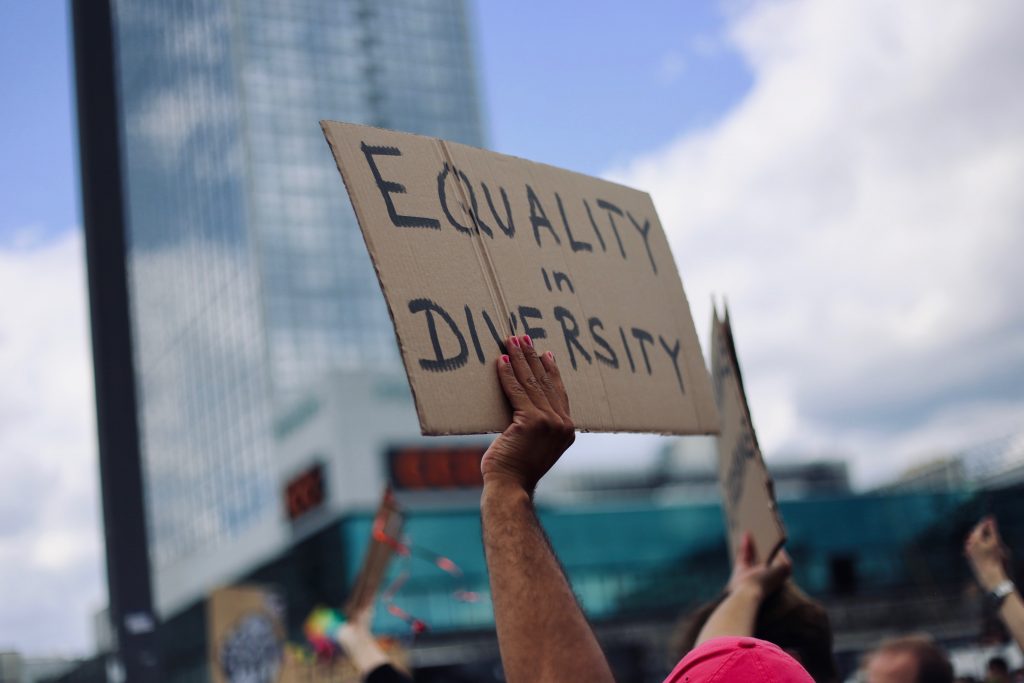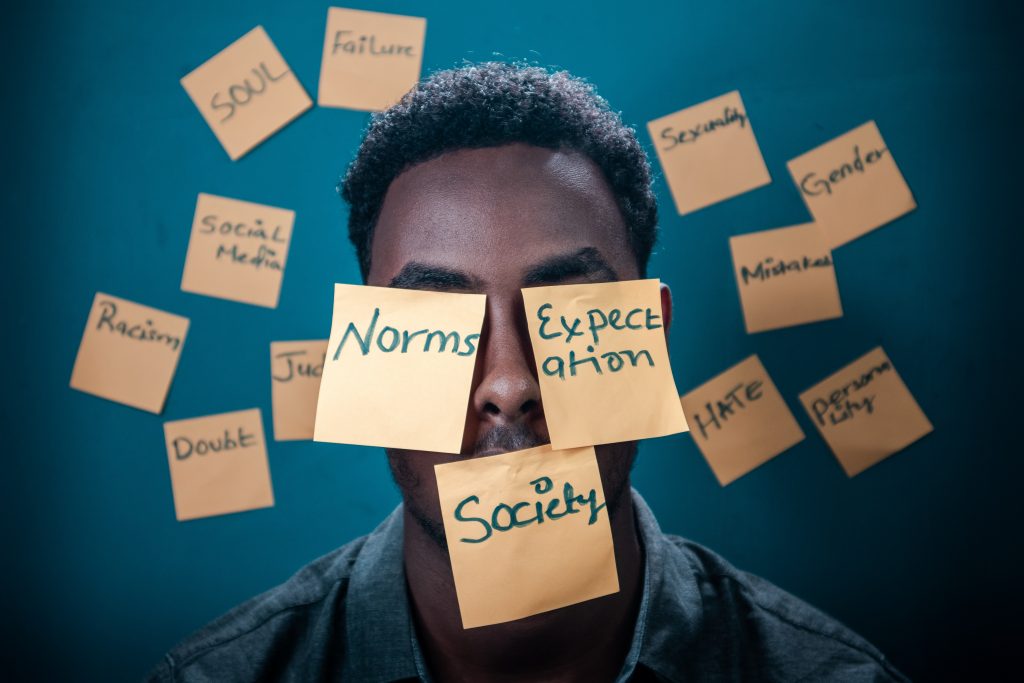
It’s World Mental Health Day 2021. And this year we’re raising awareness of Mental Health in an Unequal World. In a world of #MeToo and Black Lives Matter. Among other campaigns to highlight social inequalities. Mental health is having it’s day too. This feels like the moment, not only because the world seems to be gradually shifting the conversation on minority groups. But also because Covid-19 emphasized the privileges that many of us can lay claim to, and will hopefully acknowledge. As well as the lives of those who may go unseen and continue to go unheard.
The nature of mental health means we are all susceptible to a decline or slip. Which left unchecked and unsupported has the opportunity to develop into some form of mental health illness; whether mild or severe. And whilst Covid-19 reminded us of the more vulnerable members or our society physically. Hopefully it has shown how life events can have a huge impact on our overall wellbeing.
The pandemic had many of us thinking about our own mortality; particularly in terms of our physical health. But what about our mental health? Many of us forget the huge impact mental ill health can have on every aspect of our lives. For example, the UK’s Disability Rankings. Higher than that of an untreated spinal injury. Likewise, it is estimated that those with a diagnosis live 20 years less than those without.
For World Mental Health Day: Mental Health For All read here.
Where Does Mental Health Inequality Exist?
Mental health inequalities exist across the board. But, as we’re often not looking for them, they can remain hidden. Much like the illness; a hidden disability. From the governmental level, to the medical arena and society itself. Like many other inequalities, whether health, class, sexuality, gender, race or religion (among others) those who experience them often remain unheard. Our hands tied, to a certain degree, to request change or make a difference. And our experiences hidden from view until someone goes looking.
Examples of Mental Health in an Unequal World
- Mental health problems account for 23% of the burden of disease in the UK but receives only 11% of the NHS budget
- Mental health research in the UK receives 5.5% of the UK health research budget
- Higher prevalence’s of mental health diagnoses exist in BAME (Black, Asian and Minority Ethnic) communities
- Minority communities are less likely to receive or access mental health support than White British people.
Mental Health, Identity & Intersectionality

We know that mental ill health is more common in communities holding minority status. This is due to a combination of factors. Many of which are risk factors for poor mental health or developing a mental health condition.
For example, we cannot underestimate the impact of stigma and discrimination on one’s overall wellbeing. Likewise, experiences of being ‘othered’. Feeling like an outsider where your culture, race, sexuality, gender, religion or class is not considered the mainstream or the default. Living in a world or country that feels like it was not designed for you; that you are a guest rather than an inhabitant. These are just a few examples of a long list that can include: language barriers, experiences of trauma, distrust or lack of access to services, experiences of neglect or rejection, isolation or loneliness.
These mental health inequalities reveal the need for more awareness of mental health and mental ill health. But also the experiences of minority communities across the board. We must acknowledge how society treats and provides for minority communities. And that when this is lacking there is an impact on the community’s mental health. This is heightened when we take intersectionality into account. As many people will identify with one or more community that holds minority status or faces discrimination. But we must remember that this intersectionality creates unique life stories which must be heard. As well as new avenues to provide support and understanding.
For 10 Myths about Mental Health and Mental Illness read here.
For 4 Ways to Check In With Your Mental Health read here.
How Can We Help?
World Mental Health Day provides a yearly reminder to raise awareness of mental health. To remove it from the hidden spaces where it was talked about in hushed tones. We all have mental health; we could all develop a mental health illness. It’s past time that we talk open and honestly about these issues facing society. We must highlight the mental health pandemic that exist before Covid-19. And that has worsened in the past 18 months. Bring these conversations into the light. Make them mainstream and normalize them. And, remember that we can only speak from our own experiences. It’s our responsibility to educate ourselves about the life stories of others; but not to speak for them. How can we elevate their voices and ensure they are heard? So that when we request change, more services, better access, substantial funding, it benefits us all.
What are your thoughts or experiences of mental health inequalities? Are you aware of them? What would help? Let us know below!

Good things to highlight. I have many friends with depression.
Thank you for reading.
Black people are more likely to be detained under the mental health act as well. Whereas eating disorders are less picked up in men even when they tell there doctors they believe they have one, due to outdated views on eating disorders being a female disorder. There are so many issues with mental health support being unequal
Yes there are so many different areas where there is inequality when it comes to mental health which often we don’t know about it.
Love this post! Particularly agree with you about highlighting that their was a mental health pandemic before covid, as so many media outlets seem to be of the impression that no one had poor mental health before covid, which couldn’t be further from the truth.
Yes! It’s very easy now for everyone to say look at the impact Covid is having on mental health. But we were having a mental health crisis before Covid because of lack of ring-fenced funding meaning lack of services.
Thank you for raising awareness in this post. Mental health services are underfunded and I see daily sad stories about people being failed when they should be helped.
Something must change.
I couldn’t say it better. It’s ridiculous that you have to be seriously unwell to meet the criteria for services. We could all use support now and then. Services are so underfunded and overstretched that they are in firefighting mode and can’t do any prevention work.
This is a really great post. I used to have a mental illness, which was awful but shamefully wasn’t aware of these inequalities in mental health experiences. I’m glad you brought it to my attention as I’d love to try and do more to help – having been through the mental illness myself.
Thanks Jenny. I think it’s really powerful for all of us to realise that we can all do something however big or small.
This is a really great post and I appreciate you trying to raise awareness for mental illness and mental health, it’s so important x
Thanks for reading Della!
I had never thought about this, how unequal mental health is considered among other stuff, and for those numbers – I just couldn’t believe it! Thank you for shedding some light on this, we should all try and get mental health to receive the consideration it requires.
Thanks Simona! I was surprised too about the numbers. I think it really illustrates the problem.